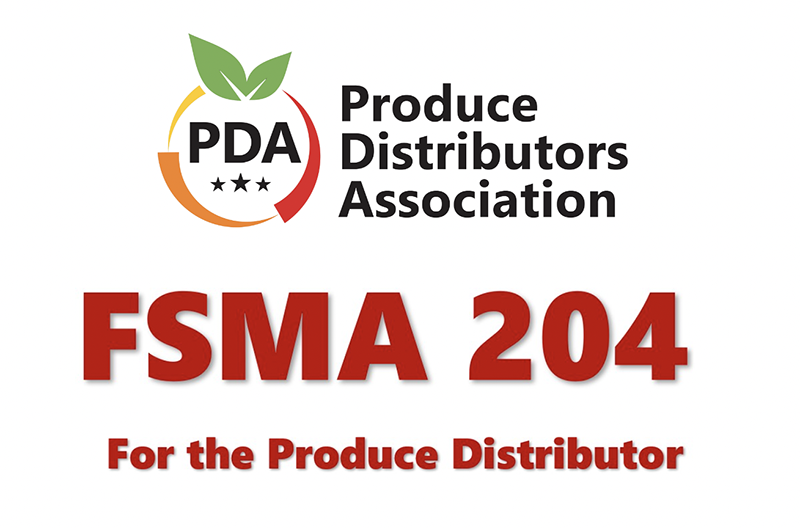The Produce Distributors Association’s Sept 24 webinar titled “Will Your Company be Compliant-Ready in Time for FSMA 204?” helped participants prepare for the new traceability rule taking effect in January 2026.
The complexities of FSMA 204(d) prompted the session to concentrate on distributors, which are scrambling to try to understand the nuances of the Food Traceability Final Rule and implement their systems properly in time to meet the deadline from the U.S. Food and Drug Administration.
The FDA isn’t expected to start conducting routine enforcement until 2027, though both Jennifer McEntire, founder of Food Safety Strategy, and Dave Donat, principal at DRD Produce Consulting, urged distributors to not delay preparations.
“This is a big deal. A lot of customers are starting to pay attention to it,” said Donat, who has spent more than three decades helping clients leverage enterprise resource planning software.
“They’re not requiring it per se, but they’re coming out and asking distributors, ‘Where are you with FSMA’? It’s the law, and your customers are bugging you to do it. What’s being asked here is doable. So, if you go into it with that mentality, I think you’ll succeed.”
[RELATED: Expert Explains Charting Path To FSMA 204 Compliance]
FSMA 204(d) expands the requirements on traceability data-keeping for those who “manufacture, process, pack or hold foods” on the Food Traceability List. The FDA is aiming to have more streamlined processes in place to react to and track down potential contaminants. Distributors must ensure they prepare and trace key data elements and critical tracking events.
While the FDA may provide some leeway, McEntire said timing is critical in any potential outbreak or recall.
“The FDA understands that despite giving the industry a little over three years since the rule was finalized, it is still going to take more time for the food community to come together and implement it,” McEntire said. “[But] if FDA requests, each company would need to provide the requested key data elements for the critical tracking events in an electronic, sortable spreadsheet within about 24 hours.”
So what falls under the Food Traceability List and new FSMA rule? Produce items include fresh cucumbers, tomatoes, sprouts, tropical tree fruits, melons, peppers and leafy greens, plus herbs. Fresh-cut fruits and vegetables and fresh-cut leafy greens also are on the list. Any other produce items, including table grapes, will not require compliance. However, Donat said distributors should consider items they might use in the future.
“If they’ve been cooked, if they have been dried or dehydrated, they come off the list,” McEntire said. “But if they’re fresh – whole, select fresh fruits and vegetables – they are on the list. In addition, any fresh-cut produce item and anything that’s used as an ingredient in another product, like a fresh-cut fruit or vegetable that’s used in a salsa, is also on the list … so that makes it pretty big.”
McEntire and Donat talked in depth about specific situations that require extra attention and took several questions from a webroom of attendees. Both experts addressed challenges for those trying to meet the new standards, including accounting for missing data and lack of standardized naming.
But Donat said creating a plan will be critical to being compliant. He suggested:
- Collecting data about inventory, including product descriptions, lot codes, quantity and unit of measure, location and receiving date.
- Having a method for assigning lot codes.
- Being detailed and organized in data gathering.
- Tracking where everything goes throughout the supply chain.
- Providing data to customers and the FDA when requested.
“You need to be able to provide data [that can be] easily provided to your partners in the supply chain,” Donat said. “It needs to be supplied to the FDA on demand. And you need to have a documented traceability plan – how you are complying with FSMA so that people can understand what you’re doing and why you’re doing it the way you are.”
Tackling FSMA 204 is one of many important issues the Produce Distributors Association is working on as an “industry watchdog” advocating for distributors in Washington, D.C. The organization aims to ensure its members are fairly represented while providing them with educational and networking opportunities.
The FSMA Myths vs. Facts webinar, available for viewing online, is one of the many resources available from the association.

